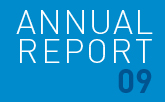During the initial months of 2009 interest was registered in projects connected with the Trans-Saharan Gas Pipeline project. Presentation of the project in Europe, support from the Commission, attempts to form a company to lead to the project, etc. By the middle of the year Gazprom registered its interest in playing some form of role in the project. Around the same time, Nigeria, Niger and Algeria, the three countries through which the gas pipeline would pass, signed an agreement. The problem is one of finance.
Subsequently, the downturn in demand in Europe saw the level of activity on this initiative cool off. It will, however, inevitably regain momentum once the market recovers, since by combining the available resources in Nigeria with the Hassi R’Mel it would provide long-term guarantees for the robustness of the South Western Corridor, essential for diversification of gas pipeline supply to Europe.
Nigeria, the main sponsor of the Trans-Sahara project, delivered its first gas to Ghana at the start of the year, via the African Gas Pipeline. This is another project which has come to fruition.
Forecasts for initial gas output from the LNG production plant in Skikda, Algeria, have been delayed until 2013, two years later than initially planned. Operational start-up of the new liquefaction plant in Arzew is also scheduled for the same year.
In October the Algerian authorities announced agreement on the development plan for the Timimoun Project, which will be operated by Sonatrach, Cepsa and Total. The plan involves sinking 40 wells in the field, with the gas extracted flowing to Hassi R’Mel, in the north.
One of the most significant projects of recent years for Europe and Algeria is the Medgaz Project. Begun in the year 2000, this gas pipeline saw its undersea section completed in December 2008. Conclusion of the ancillary elements (specifically the Beni Saf compression station) has been subject to certain delays, meaning that it is expected to come on stream in the second half of 2010. The project involves Sonatrach, Cepsa (the two initial developers), Iberdrola, Gaz de France and Endesa. Medgaz will be the first gas pipeline directly connecting Algeria (Africa's largest producer) with the European continent.
Sonatrach has plans to increase its investment programme by 41% over the next five years, an ambitious programme and a sign of optimism, contrasting with the more short-termist view taken by other key players in the energy sector.
Angola will become an LNG exporting country over the coming years. The Angolan Oil Ministry stated in late September that the liquefaction plant would begin production in January 2012. Located close to the northern city of Soyo, it will produce 5.2 million Tm, with BP and ENI among the companies involved in the project.


